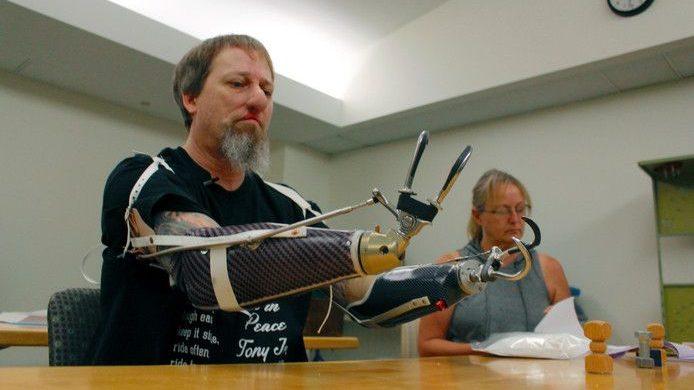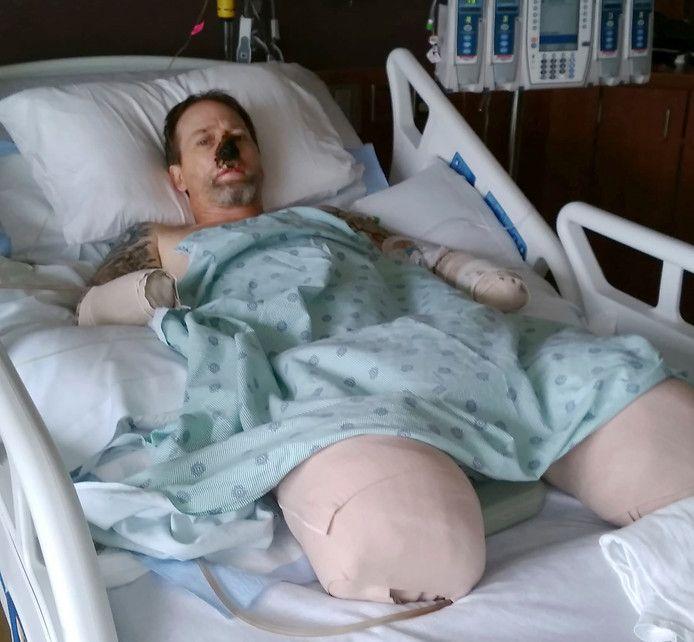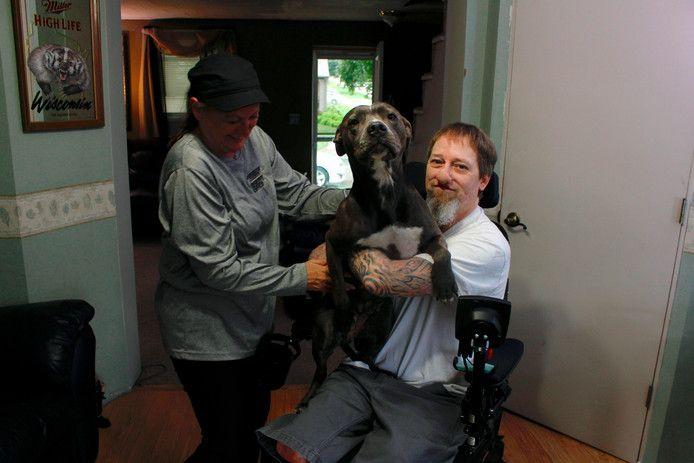Man loses hands and legs by dog saliva, scientists find genetic cause

The hands and legs of 48-year-old American Greg Manteufel had to be removed last year after he got a life-threatening infection from a bacterium in dog saliva. Scientists have now found a gene linked to Manteufel’s blood poisoning, which was probably caused by a lick from his beloved pit bull Ellie.
The dog that Greg Manteufel and his wife Dawn from the American state of Wisconsin have had since she was a puppy, is always close by.”We love her as a daughter,” says 49-year-old Manteufel, who was never ill before he entered the hospital.
The man lost his lower legs and part of both arms last year. The skin of his nose and upper lip also fell off. He had blood poisoning, which caused his blood pressure to drop and his organs to fail. The cause turned out to be the bacterium Capnocytophaga canimorsus, which occurs in the saliva of many dogs. For most people, the bacteria are harmless. However, in the past ten years at least five people have become deathly ill after contact with the bacterium. Three of them survived the infection after several amputations. Two people died.

Researchers at Harvard Medical School have now discovered that the cause is probably genetic. According to the scientists, all people who became ill after contact with the bacterium have one thing in common: a gene related to their immune system works just a little differently than in most other people. That makes them vulnerable to contact with Capnocytophaga canimorsus. Further research should show which other risk factors contribute to the violent reaction to the bacterium that occurred in Manteufel.
The man from the state of Wisconsin is doing much better after more than twenty operations. He has prostheses for his hands and legs with which he practices. After two weeks he had already left the rehabilitation center, while most patients stay there for three to four weeks. He practices doing the dishes and opening doors. Plastic surgery will soon have to repair his nose. Before his infection, he was a house painter, and he hopes to return to work at some point.
In the meantime, Manteufel is participating in scientific research into the disease, in the hope that future victims can be helped more quickly. In a few months, he will hear if he has the gene variation. If so, further illness cannot be excluded. But Ellie, who may be carrying the bacteria, will “continue to live with him and his wife,” he says. “She loves children, puppies, and other dogs.” She has already licked him and accidentally scratched him. He feels fine. “We didn’t even have her tested. We would never give up on her,” said Manteufel. “We just love her dearly.”





